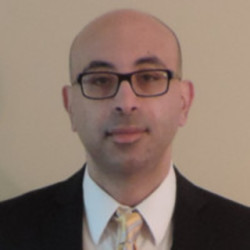The 37th annual meeting of the Associated Professional Sleep Societies, LLC (APSS) was held in Indianapolis from June 3–7, 2023. The meeting was entirely in-person this year, which was a great opportunity to meet colleagues in person from different geographic areas across the country as well as internationally and to attend exciting sessions that brought all the experts in the field together.
Sessions covered topics across all age groups, from children to older populations, and other subjects like hypersomnia, circadian rhythms, and obstructive sleep apnea. This meeting will benefit our patients and the sleep medicine field in general. One of the main topics this year was discussing sleep health disparities (SHDs). This was highlighted in sessions like “Sleep and Circadian Disparities — The Role of Socioeconomic Status, Race, Family and Neighborhood,” and others like “Root Causes of Sleep Disparities: Structural Racism and Sleep Deserts,” as well as sessions like “Sleep, Development, and Social Context: Implications for Health Disparities,” focusing on the variable aspects of sleep disparities and what the providers in sleep medicine can do to address these discrepancies for our patients.
SHDs were reported by Billings et al., where the authors discussed this important topic that can be influenced by several factors like family values, home environment, race, and access to health care. This article discussed the importance of discussing this topic with the providers as well as with our patients and explained the successful models that can be adopted to address this matter, for example: providing education to the primary providers in regard to important sleep medicine topics and expanding telehealth.
Sessions on using Artificial Intelligence (AI) in sleep medicine were interesting, including sessions like “Artificial Intelligence in Sleep Medicine: Applications,” others like “Priority Areas of Research in Artificial Intelligence in Sleep Medicine,” in addition to sessions like “Identifying and Overcoming Barriers for Clinical Use of Artificial Intelligence in Sleep Medicine,” where these sessions followed the current trends aiming to look into the possible incorporation of AI in the day-to-day work based on evidence-based data. AI is expected to improve the practice of sleep medicine.
These two important topics were featured in this year's meeting and can potentially revamp the future of our field. I am looking forward to future sleep medicine meetings where we can continue to discuss the evolution of topics like AI and SHDs for all age groups in sleep medicine.
Dr. Morkous has no conflicts of interest to report.
Are you interested in writing about your experience attending a medical conference this year? Respond here.
Image by GoodStudio / Shutterstock






